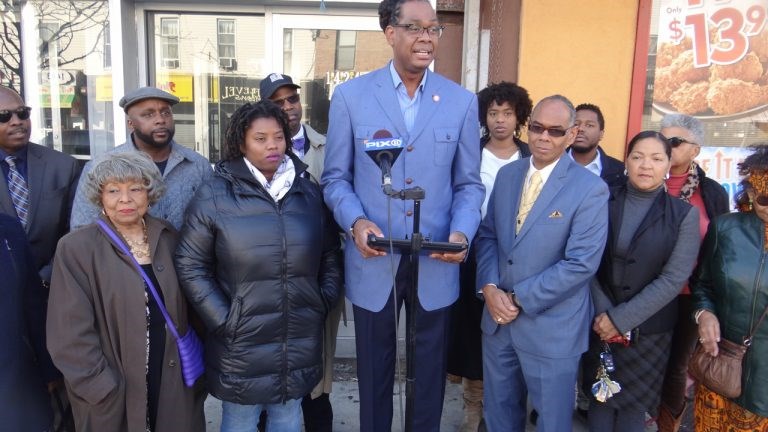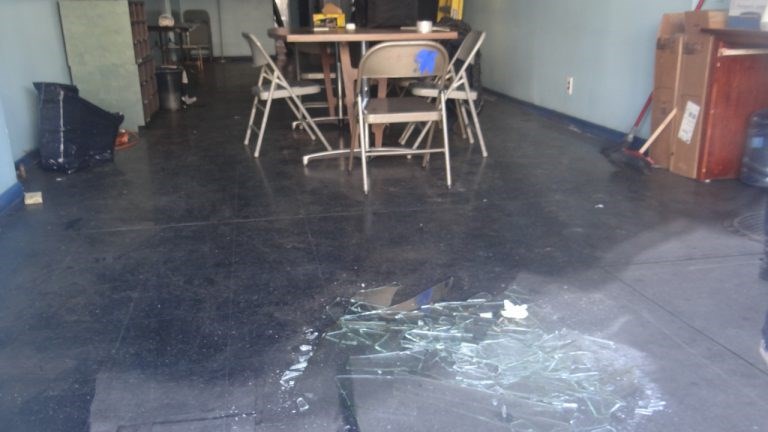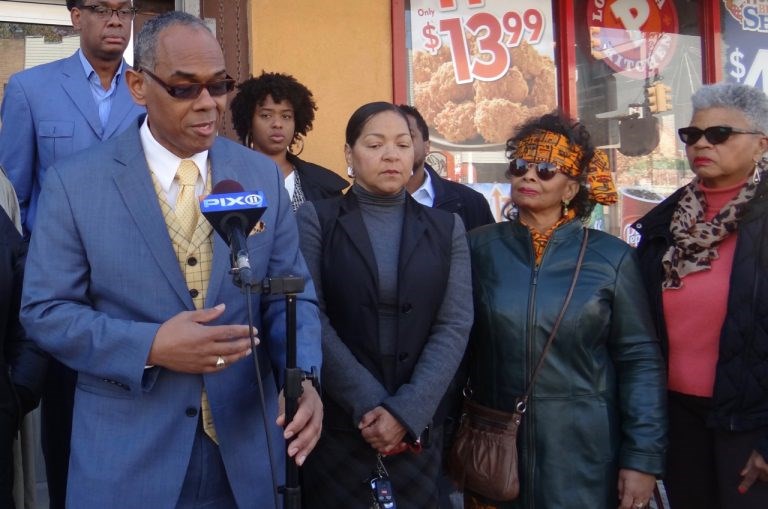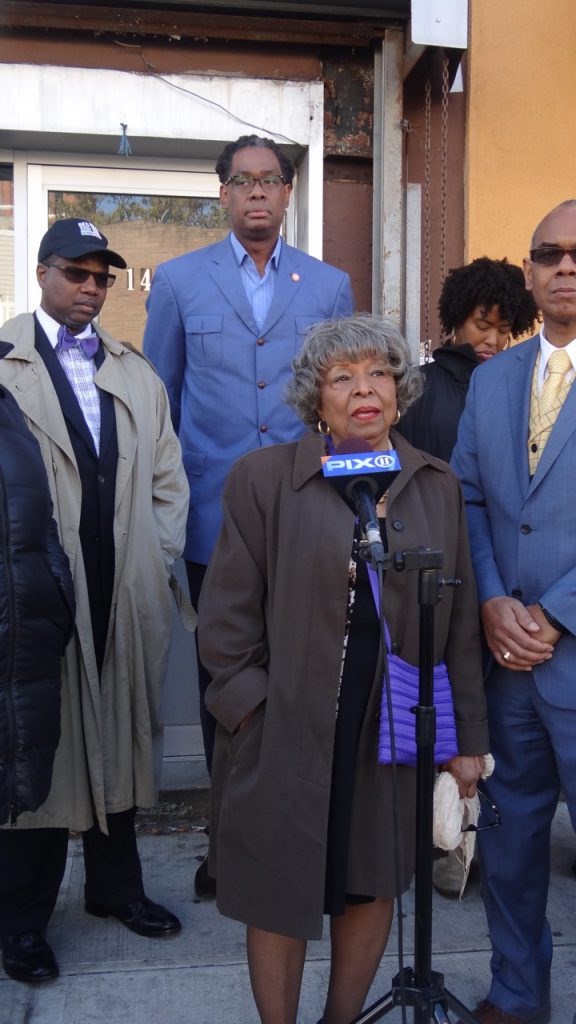
Crooks chose the wrong victims when they attempted to swindle co-owners Gloria Sandiford and Richard Flateau out of the deed for their property, located at 1424 Fulton Street in Bed-Stuy last Friday, November 11.
Luckily, Flateau, owner of Flateau Realty Corp, and Sandiford, president of the Bedford Stuyvesant Real Estate Board, were well versed on the growing problem of deed theft and had been hosting a series of public forums around the problem for the past two years.
Luckily, the co-owners were registered with the Automated City Register Information System (ACRIS) which notified them within one day of the cagey business transaction.
And luckily, both had already been working side-by-side with cadre of local elected officials actively pushing legislation addressing housing scams such as deed theft around the city.
Additionally, the property of the criminal's target was a community staple. For four decades it had become a welcoming quarters for organizing and activism: It was formerly owned by Ernesta Procope, one of the first, black female insurance brokers in the city and former publisher of The Amsterdam News; it was later occupied by the Vanguard Independent Democratic Association (VIDA), and was a long-standing meeting place for political clubs and associations.
Thursday morning, Flatueau and Sandiford, along with City Councilmember Rob Cornegy, held a press conference in front of 1424 Fulton St. to put individuals and corporations on notice that the practice of deed fraud will not be tolerated in communities such as Bed-Stuy without significant pushback.

Also joining the press conference were Judge Betty Staton, president of Brooklyn Legal Services; L. Joy Williams, president of the Brooklyn chapter of the NAACP; Michael Lambert, president of the Bedford Stuyvesant Gateway BID, and representatives from the Brooklyn D.A.'s office and the office of Assemblywoman Annette Robinson.
"It started in little subtle ways with people offering homeowners money, but now they've gotten so aggressive that they're literally defrauding deeds, forging people's signatures and stealing people's property," said Cornegy. "But we're saying today: No, you cannot get our property in this way.
In the case of 1424 Fulton St., not only was the property broken into and vandalized (the criminals had climbed in through the skylight), but also the crooks immediately forged documents and filed a power of attorney, granting them the authority to conduct banking, insurance and real estate transactions on behalf of the property.
They even had the gall to change the locks on the front door and mailbox.
"It just so happened that these were very sophisticated criminals," said Flateau. "The document got recorded on a Thursday and the next day was Veterans Day, so all of the city offices were closed."

Judge Staton said her Bed-Stuy office receives a lot of reported cases of scamming, particularly where elderly residents are the target. She noted that although property scams were as prevalent as deed theft, scams were much harder to prosecute, as scammers receive the consent and signature of the property owners who are unaware they are being swindled.
"There are so many people in our community that really do not know; sometimes these are older people with diminished capacities," said Judge Staton. "And sometimes they're family members who are complicit because they are thinking they will get a lot of money, so they'll convince their grandmother or mom or whomever."
"Residents need to be very watchful, and they need to get their property registered with ACRIS, so they can get automatic notification on any changes in their property," said Flateau. "And there needs to be reforms to make it a little harder for people who commit fraud."

Currently deed records, including information on property owners, are public information; anyone can access them. Cornegy said the City Council is working on legislation that either limits access to or increases scrutiny of those who request these records.
"This is one of the very negative aspects of the 'G-word;' it's a byproduct of gentrification," said Cornegy. "We know that we have some of the most valuable real estate in the city and the state of New York. A lot is changing in the neighborhood; we know that these properties in this neighborhood are valuable. But when the value of property is so important to some people that they would stoop to these levels to gain them... We want to tell people there is no embarrassment, no shame, you do not have to suffer in silence. Call one of our offices and report this if it has happened to you. This is a crime, and these criminals will be prosecuted."
"They're looking for you not to respond; they are looking for you not to call the city, not to call one of us. They want you to be silent," said Williams. "We want you to speak up. We will stand with you to preserve what is rightfully yours-- what you have invested, your hard work and years of sacrifice."
Flateau said he and Sandiford still do not know who's behind the fraudulent company formed only a few days before the deed theft took place but that the D.A.'s office is now involved and it is under investigation.
If a resident or a business owner believes he or she is the target of harassment or the victim of deed scam or deed theft, contact Brooklyn Legal Services, the Bedford Stuyvesant Gateway BID, the office of Councilmember Rob Cornegy, the Bedford Stuyvesant Real Estate Board or the Brooklyn NAACP.



